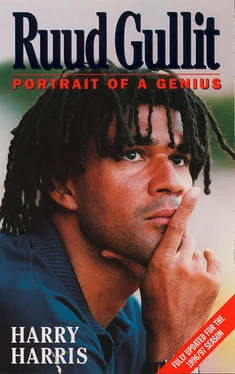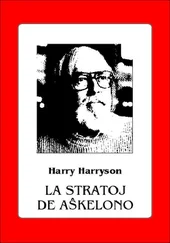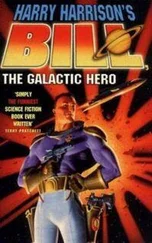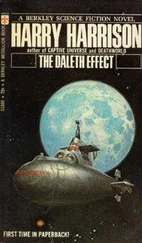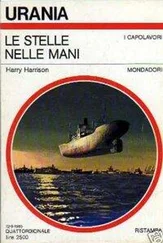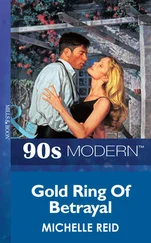Finally, a special thanks to Dutch photographer Peter Smoulders for his excellent portfolio of Ruud Gullit pictures.
The first non-British manager to reach the FA Cup Final is none other than the charismatic Dutchman Ruud Gullit. This is all the more remarkable considering that he achieved this distinction in his very first season in football management.
When he was informed that he had made English football history after Chelseaâs FA Cup semi-final demolition of Wimbledon at Highbury in April 1997, it was a moment to savour, a special achievement even in his distinguished career. âI have just been told that I am the first foreign coach to take a team to Wembley in an FA Cup final and am very proud of that. But it is important we win it, as first place is the only thing that matters in any competition.â And win it they did, in true style.
Gullitâs first season in charge produced a whirlwind of activity at the Bridge. Witnessed by thousands of fans were a kaleidoscope of spectacular goals, famous victories and disappointing defeats. Winning at Old Trafford and beating mighty Liverpool twice at the Bridge would be etched forever in the memories of Chelsea supporters â including that epic 4â2 win in the fourth round FA Cup tie after being two goals down, a match seen by millions on BBC TV.
English football has been a graveyard for foreign managers. Their track record is a litany of disaster. In recent years Dr Joe Venglos at Aston Villa and Ossie Ardiles at Newcastle and then Tottenham have flopped. Gullit broke the mould, as has Arsene Wenger at Arsenal.
But Chelseaâs managing director, Colin Hutchinson, explained that Gullitâs management role is not typical. âEnglish football is entering the era of the coach. It is the Continental way and Chelsea are pioneering this with Ruud working in a classic Continental set-up. He identifies the players he wants and I try to get them. We were fortunate that Ruud had a year in the Premier League as a player to get to know the English game and fellow Blues before taking over as player-manager. It would have been too much to have asked him to play, coach and manage when he first arrived in London from Sampdoria.
âHad Ruud turned down the player-manager role, Chelsea might still have gone Continental. Arsene Wenger was a possibility, although indications were that he would not be available until well into the season. Sven Ericksson, who has had European success with Malmo, Benfica and Sampdoria, was another prospect.
âPremiership squads will continue to be multi-national. The next big invasion could be from Continental coaches, which would be another step on the road to helping raise standards and the technical quality of the English game. If that makes our clubs a stronger force in European competitions, then it will be for the good. Until Englandâs clubs start winning European cups we wonât be seriously considered as the number one league in the world.â
Gullit has helped to transform English football by incorporating a host of ideas from Italy, where he was the worldâs number one with AC Milan. Look at his pre-Chelsea career and you can easily deduce why many of his players say they have learned so much from him. Gullitâs honours include World Footballer of the Year (1987); European Footballer of the Year (1987); European Championships winner (1988); European Cup winner (1989, 1990); Italian League title winner (1988, 1992, 1993) and Dutch League title winner (1984, 1986 1987); 66 caps for Holland and scorer of 16 international goals. Gullit also wins the praise of footballâs top players. George Weah, World Footballer of the Year in 1996, recalls meeting him when they both played for the Rest of the World XI in Munich. âHe was very pleasant and respectful. He spoke to me like a son or a brother. He was full of encouragement and came across as a superb role model for us all. I really admire him as a player. Like Eric Cantona, Ruud always speaks the truth. He never hides from it and that has earned him huge respect worldwide.â In his first season as a player in England, Gullit was quick to win the respect of the UK fans. He was named 1996âs Best International Player in the UK by readers of the football magazines World Soccer, Goal, 90 Minutes, Soccer Stars and Shoot .
His innovations have been a breath of fresh air for the traditional English game, and he has implemented them without any grey flecks appearing on his famous dreadlocks. This isnât to say that Mr Super Cool doesnât experience any emotion. âI think the very best time is the relief of scoring a goal or watching the celebrations of the players after scoring.â
While Kevin Keegan and other high-profile bosses were struck down by burn-out, it was a stress-free zone for Gullit, who in the summer of 1996 managed from the bench in an Armani suit and no socks, and in the winter of 1996/97 with fashionable apparel, including a bobble hat to keep not only his head warm but also his dreadlocks dry.
Voted Britainâs Best Dressed Man, Ruud was signed up for his own designer label Ruud Wear. The BBC negotiated a two-year contract after his roaring success with Des Lynam and Alan Hansen during Euro 96, and he signed a lucrative TV commercial deal to advertise M&Ms.
In his first six months in charge he bought and sold 12 players for a transfer turnover of more than £18 million. He imported Gianluca Vialli, Gianfranco Zola, and Roberto di Matteo and Frank Leboeuf for a cost of £12 million and sold old favourites such as John Spencer, Terry Phelan and Gavin Peacock. Ruud also sold Paul Furlong and youngsters such as Anthony Barness and Muzzy Izzett, with Mark Stein and David Rocastle loaned out.
The players Gullit recruited sent the wage bill soaring to £15 million a year. Accounting for the lionâs share were the £25, 000-a-week salaries of the Italian superstars, who are among Chelseaâs nouveaux-riches and regularly dine at San Lorenzoâs, Princess Dianaâs favourite Kensington eatery.
By Gullitâs own admission the 1996/97 football season was a âroller coaster yearâ. But how the fans loved it. The average home game attendance was 27, 600 â the best for nine years. Season ticket sales for 1997/98 have set a record for the third year running. The next stage of the Bridge development is a lavish £25 million new West Stand with 15 millennium suites, 34 boxes, 14, 000 capacity and more than 2, 500 places for meals on match days. The current capacity of 28, 500 will rise to 35, 000 in the 1997/98 season and ultimately 43, 000 when the complex is complete. Clearly, Chelsea are building towards becoming the Manchester United of the South. Captain Dennis Wise said: âWe used to play in front of 13, 000, but this year it has been totally different. It has been 28, 000 every week, and thatâs how it should be at Chelsea. As a result weâre more where we should be as a club.â
Mark Hughes is a man of action and few words. He said: âPerhaps in the past Chelsea hoped to be involved in a competition at their climax. Now we expect to be. Thatâs progress.â
Chelsea Football Club were once synonymous with racism. It was infested by the National Front, the home of soccer bigotry. The Shed was its symbol, a breeding ground and recruitment centre. It was not alone, of course. There were several other terraces in English football plagued with violent and unsavoury fans, whose racism was demonstrated by antics such as throwing bananas onto the pitch and imitating monkey noises.
Chelseaâs few black players were hardly welcome. So, it was hell for black opponents, targeted much to the embarrassment of black and white Chelsea players alike.
Читать дальше
